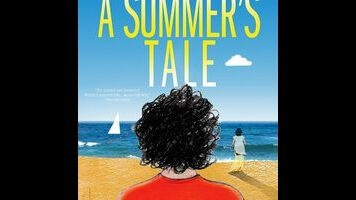Beneath the breezy (if bittersweet and bluntly haunting) films of the deceased Eric Rohmer lies a profound arrogance that not even the likes of James Cameron or Quentin Tarantino could dream of matching. Such an observation is at odds with the iconic filmmaker’s image, as the chatty approachability of Rohmer’s quotidian stories have earned him a reputation as the gentlest product of the French New Wave. Perhaps, in some small way, that enduring misconception of who the man was is due to the fact that A Summer’s Tale—released abroad in 1996—didn’t see the light of an American screen until earlier this year. While the film, the third installment of Rohmer’s Tales Of The Four Seasons cycle (and the only episode not to secure domestic distribution), is potentially the most pleasant and watchable movie he ever made, it’s also the one that most transparently reveals his peerless swagger.
A Summer’s Tale is one of Rohmer’s very best films, and also one of the ’90s very best films, though it’s hard to say for sure which declaration pays the greater compliment. As with many of the director’s movies, this idyllic observational reverie is anchored by a handsome young man who has the world at his fingertips, the type for whom every encounter is brimming with the equal possibility of sex and catastrophe. Gaspard (Melvil Poupaud) is a mopey French musician who thinks he’s Jim Jarmusch but acts like Zach Braff. The film, which is punctuated by a series of title cards announcing the date, begins as summer starts to slope toward the dog days. A ferry deposits Gaspard in the seaside town of Dinard, where the despondent young man waits for the arrival of his sort-of girlfriend, Lena. (He insists they were never formally together, and that their relationship was merely a “habit of coincidence.”)
In between nights spent alone strumming his guitar, Gaspard befriends a candid and confrontational waitress named Margot (Amanda Langlet), who might be ground zero for manic pixie dream girls were she not the smartest and most fully realized character in a film full of people whose lives seem to continue well beyond the frame. Margot is one of three beautiful women that Gaspard courts; one makes herself available to him, one dismantles him, and one forces him to reckon with his own towering mound of bullshit. As Gaspard wrestles with the final decision of who to take on a romantic getaway, A Summer’s Tale becomes the platonic ideal of the film that people have in their mind’s eye when tracing Hong Sang-soo back to Eric Rohmer. It’s also, essentially, Rohmer’s Mamma Mia! (complete with Gaspard’s decidedly uncool—and thus, very cool—pirate shanty).
The story spans almost three weeks, over the course of which A Summer’s Tale vacillates between being a peerlessly incisive portrait of self-preservation, and a chaste slice of earthy erotica; the ultimate effect is due not to the idea that those two things aren’t mutually exclusive, but that Rohmer makes them fundamentally inextricable. “Friendship is serious, maybe even more than love,” Margot tells Gaspard, as a kid in a candy store poses for one of the slyly suggestive frames that Rohmer’s camera always seems to find. It’s early in the movie, and he knows that she’s right, but the summer sun has a way of getting so hot it becomes impossible to think it’s ever going to set.
A Summer’s Tale is available on DVD from Big World Pictures.

 Keep scrolling for more great stories.
Keep scrolling for more great stories.
